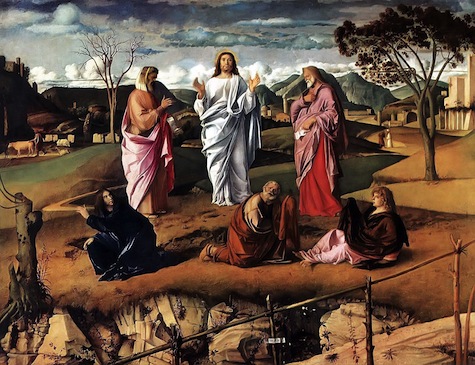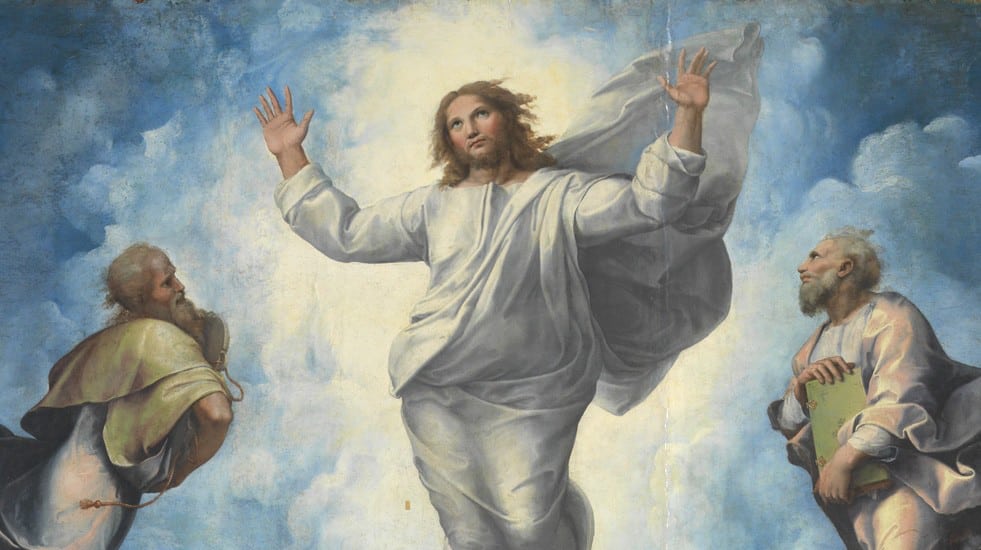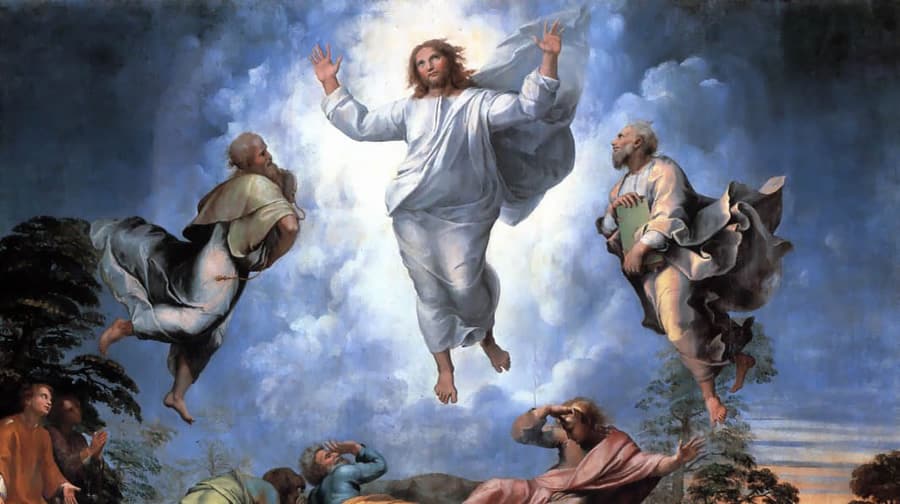God our Father has unusual ways of showing us how precious we are in his eyes. He shows us his love also whenever we realize that the things, on which we had relied, begin to disappoint us; let us down; and whatever we are building laboriously displays signs of weakness and threatens to come tumbling down on us.
This is similar to what the Book of Genesis (22: 1-2, 9, 10-13, 15-18) tells us was happening in the life of Abraham and, similarly, this is the reason why Jesus’ three closest friends find themselves enveloped by a mysterious cloud as he is transfigured before their startled eyes. However, before we can benefit from these two unusual experiences, we need to translate the two accounts from their oriental biblical expressions into our western parlance. If, first, we do not do this, we would have a hard time taking to heart and applying to ourselves the full impact of the message present in them.
We are so used to read in the Bible that God speaks, gives orders, instructs, threatens and admonishes and so on, that we forget that he is pure Spirit. He doesn’t have a mouth, yet he speaks. He doesn’t have eyes, yet nothing escapes him. He doesn’t have hands, yet he creates the whole universe out of nothing and governs it with infinite and purposeful wisdom. We should also realize that heaven is not a place somewhere past the clouds where God dwells and to where we hope to end up, but an indescribable way of living forever in his most loving embrace. There should be many other “translations” to be made but the bottom line is this: from the first moment of creation and into eternity, God has not changed anything about the way he governs the world, communicates with us, guides us, saves us, and welcomes us into his eternal embrace. Here is, then, our reading (from Genesis) rendered in a way we can understand.
Abraham to whom God has given a child (Isaac) in his old age from his barren wife (Sarah) finds himself facing an impossibility of such magnitude that his whole life teeters on the brink of annihilation. Abraham knows that God is fully trustworthy. He has kept his promise by giving him Isaac. But how can Isaac be the beginning of a lineage, of a posterity more numerous than the sand by the seashore when it was common practice, at the time, to show appreciation to the gods by sacrificing to them one’s firstborn? Is the God who had chosen Abraham as the recipient of his divine blessings requiring the sacrifice that would have destroyed the life not only of the child but also of Abraham and Sarah? Is Abraham the victim of a cruel joke from God?
After anguishing and prolonged inner struggles Abraham finds compelling evidence that Yahweh God doesn’t want human sacrifices, but is pleased simply with the sacrifice of obedience from those who trust in him unconditionally.
And, here is how our passage from the Gospel of Mark (9:2-10) becomes accessible to us: Peter, James and John must have been experiencing crippling anguish when Jesus told them, and all other close disciples, that he had to suffer greatly, be put to death and then rise again after three days. Hence, from the time he broke to them the news of his impending passion and demise, they must have entered a cloud of uncertainty and debilitating darkness.
What would happen to them who had left everything and invested their entire life on this prophet from Nazareth? Was everything fizzling away into nothing before their frightened eyes? Let us keep in mind that they had no concept, yet, of what “rising from the dead” could have possibly meant.
The preface of Holy Mass for the Second Sunday of Lent indicates that Jesus was transfigured before Peter, James and John to assure them about the light and the glory that await both Christ and those who believe in him even after the darkness and the horrors of a terrifying passion and most cruel death. Yet, notice how the vision of a transfigured Lord is still insufficient to dispel the cloud of terror and paralyzing anxiety that had gripped the three disciples.
Similarly, all the Transfiguration Feasts which we have celebrated thus far in our life: twice a year to be exact, (on the Second Sunday of Lent and on August 6) with all their significance and intended reassurance, leave scores of us still anguished and groping in darkness. This Second Sunday of Lent is designed to equip us with the right spiritual tools to help us out of any cloud of intense anxiety, crippling fears and thick darkness. God, who, at times, tests the extent of our trust in him in ways that might tear us apart inside, provides us with compelling evidence of his faithfulness and love.
If God is for us, who can be against us? He who did not spare his own Son but handed him over for us all, how will he not also give us everything else along with him? (Romans 8:31-32)
Any sacrifice that the Lord might ask of us, any trial that we might have to face, any cloud that might obscure our days become part of our life, with the guarantee of success, only if it is endured with the firm knowledge that the Father has already sacrificed for us his only Son, Jesus Christ.
Furthermore, the Father’s plan for us doesn’t just include mere survival of terrifying times, but a transfiguration in all similar to the one that, twice a year, we contemplate in Christ our Lord.
What we need in order to face anything that life might throw at us and look forward to our own transfiguration is Jesus as Word and Jesus as the Father’s Sacrificial Lamb slain for us all. Jesus is the only mouth, eyes, hands and heart that God possesses. Therefore, we resolve to listen to him, every time, everywhere. This is Jesus to whom we are united more firmly at every Eucharistic Celebration through the table of the Word and at the table of the Sacrament.
And we believe that nor height, nor depth, nor any other creature will be able to separate us from the love of God in Christ Jesus our Lord. (Romans 8:39)







